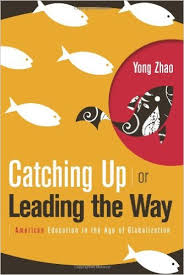 So this wasn’t a part of my original stack of summer reading books (see Summer Reading part 1 post), I happened to stumble across this while browsing on Amazon for something else so I purchased it (along with 4 other books – yikes! I have even more to read now…). This was worth the read.
So this wasn’t a part of my original stack of summer reading books (see Summer Reading part 1 post), I happened to stumble across this while browsing on Amazon for something else so I purchased it (along with 4 other books – yikes! I have even more to read now…). This was worth the read.
Published on June 7, 2016, Princeton assistant professor Wendy Warren focuses in great detail on the origin and institution of slavery in New England. Normally, we don’t think of slavery having deep roots in the earliest days of colonial New England but Dr. Warren’s copious research and documentation shines new light on how slavery and the slave trade emerged as a significant part of the economic, political, and social structures of New England.
This is also a deeper look into globalization. One of the things I want to be more intentional about with my 9th grade American Studies students is globalization through the context of 17th, 18th & 19th century America. This paragraph on page 113 really struck me:
“The work of colonization had proceeded thus: Indians and Africans had replaced each other in ways orchestrated by settler colonists, for the purposes of profit and expansion. The Atlantic slave trade was a process, consisting of a series of moments in which people of diverse nations and cultures (African elites, European merchants, Indian adversaries) all agreed, at various times in different places, to capture and commodify other people. If enough had said no, the system might have faltered. but people predictably, tragically, said yes, in Europe, in Africa, in the West Indies, and in New England, and their individual moments of agreement helped facilitate, in the seventeenth century, a global trade. The eventual decision make by other people to say no, more than a century and half later, would create a continental rupture.”
This is not a book for my 9th grade students to read. It could work with strong junior or senior readers and is certainly appropriate for college students. I have to figure out how to take some key excerpts like the paragraph above and embed them into my instruction. There are also excellent primary sources referenced so I will seek out those documents for students to work with.
I might also use NPR’s Fresh Air interview with Wendy Warren with my students. Having them listen to a segment of the Terry Gross’s interview may be a good entry point into our study of slavery. Fresh Air Interview Transcript




